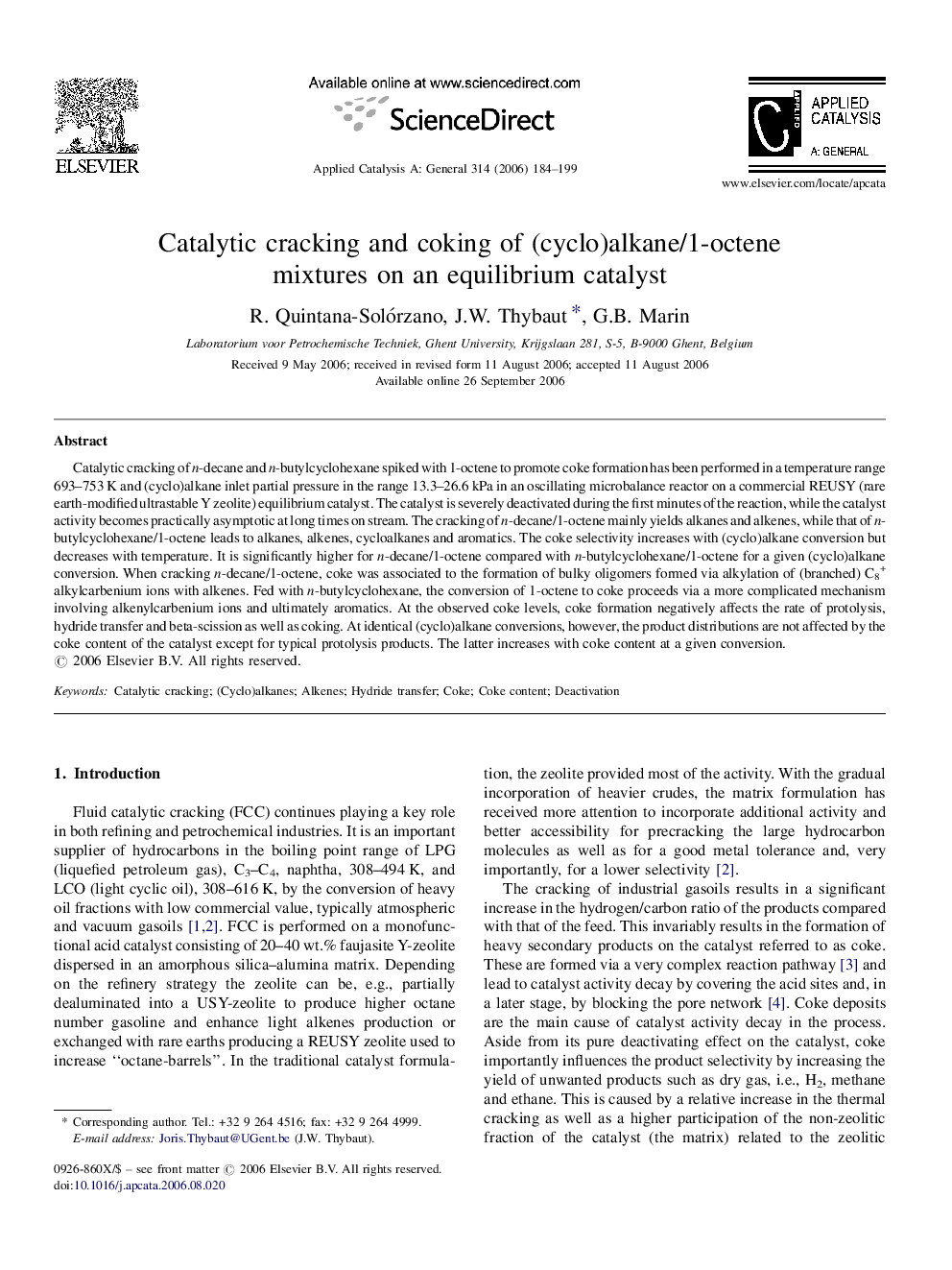| کد مقاله | کد نشریه | سال انتشار | مقاله انگلیسی | نسخه تمام متن |
|---|---|---|---|---|
| 44471 | 46033 | 2006 | 16 صفحه PDF | دانلود رایگان |

Catalytic cracking of n-decane and n-butylcyclohexane spiked with 1-octene to promote coke formation has been performed in a temperature range 693–753 K and (cyclo)alkane inlet partial pressure in the range 13.3–26.6 kPa in an oscillating microbalance reactor on a commercial REUSY (rare earth-modified ultrastable Y zeolite) equilibrium catalyst. The catalyst is severely deactivated during the first minutes of the reaction, while the catalyst activity becomes practically asymptotic at long times on stream. The cracking of n-decane/1-octene mainly yields alkanes and alkenes, while that of n-butylcyclohexane/1-octene leads to alkanes, alkenes, cycloalkanes and aromatics. The coke selectivity increases with (cyclo)alkane conversion but decreases with temperature. It is significantly higher for n-decane/1-octene compared with n-butylcyclohexane/1-octene for a given (cyclo)alkane conversion. When cracking n-decane/1-octene, coke was associated to the formation of bulky oligomers formed via alkylation of (branched) C8+ alkylcarbenium ions with alkenes. Fed with n-butylcyclohexane, the conversion of 1-octene to coke proceeds via a more complicated mechanism involving alkenylcarbenium ions and ultimately aromatics. At the observed coke levels, coke formation negatively affects the rate of protolysis, hydride transfer and beta-scission as well as coking. At identical (cyclo)alkane conversions, however, the product distributions are not affected by the coke content of the catalyst except for typical protolysis products. The latter increases with coke content at a given conversion.
N-decane and n-butylcyclohexane admixed with 1-octene are cracked in the presence of coke formation on an equilibrium catalyst in an oscillating microbalance TEOM® reactor. Figure optionsDownload as PowerPoint slide
Journal: Applied Catalysis A: General - Volume 314, Issue 2, 9 November 2006, Pages 184–199